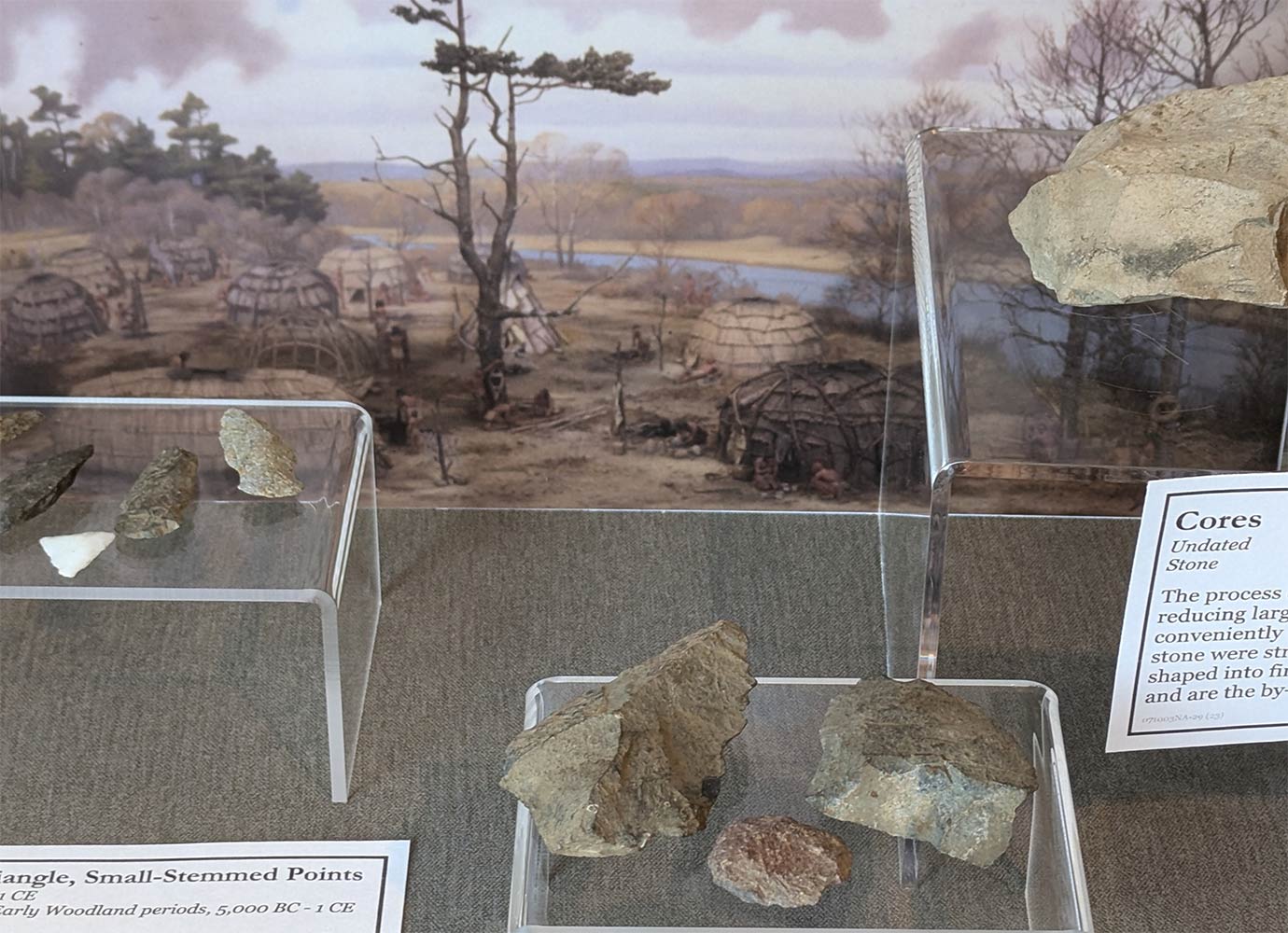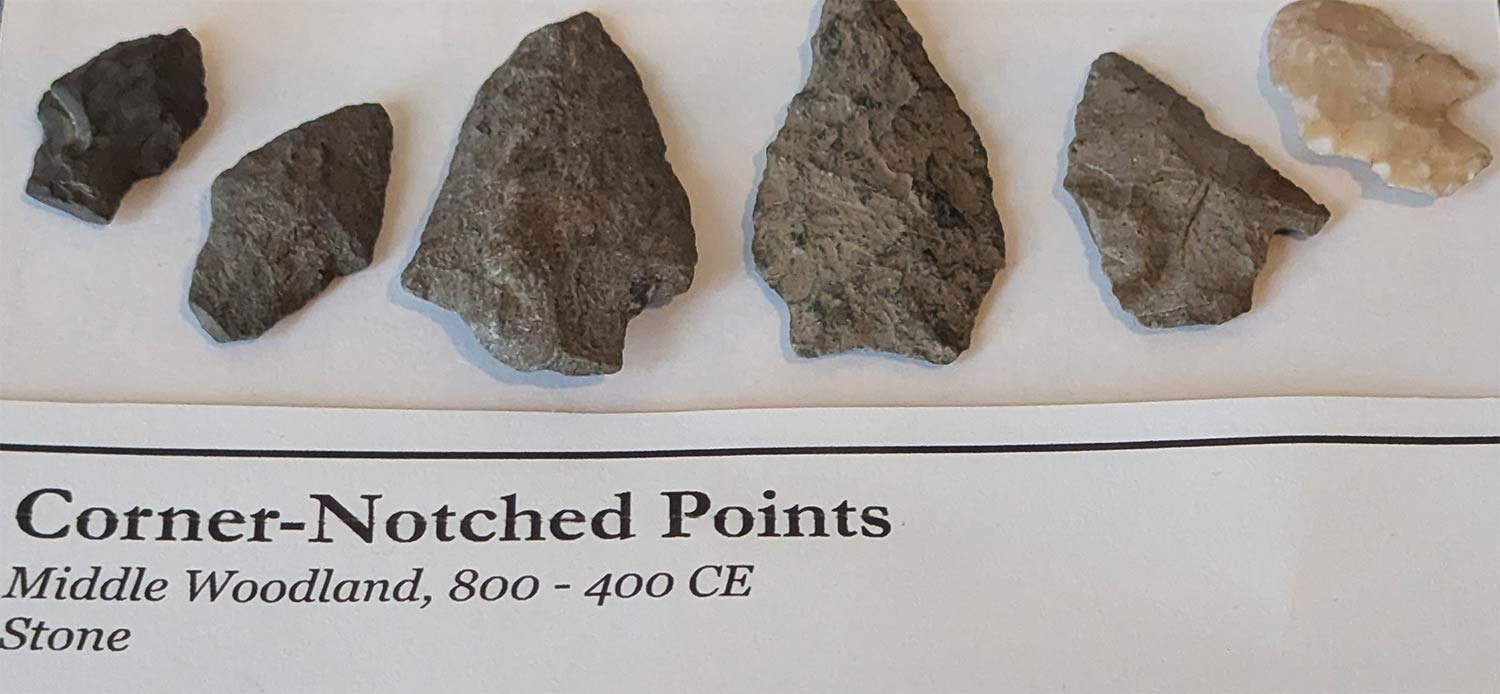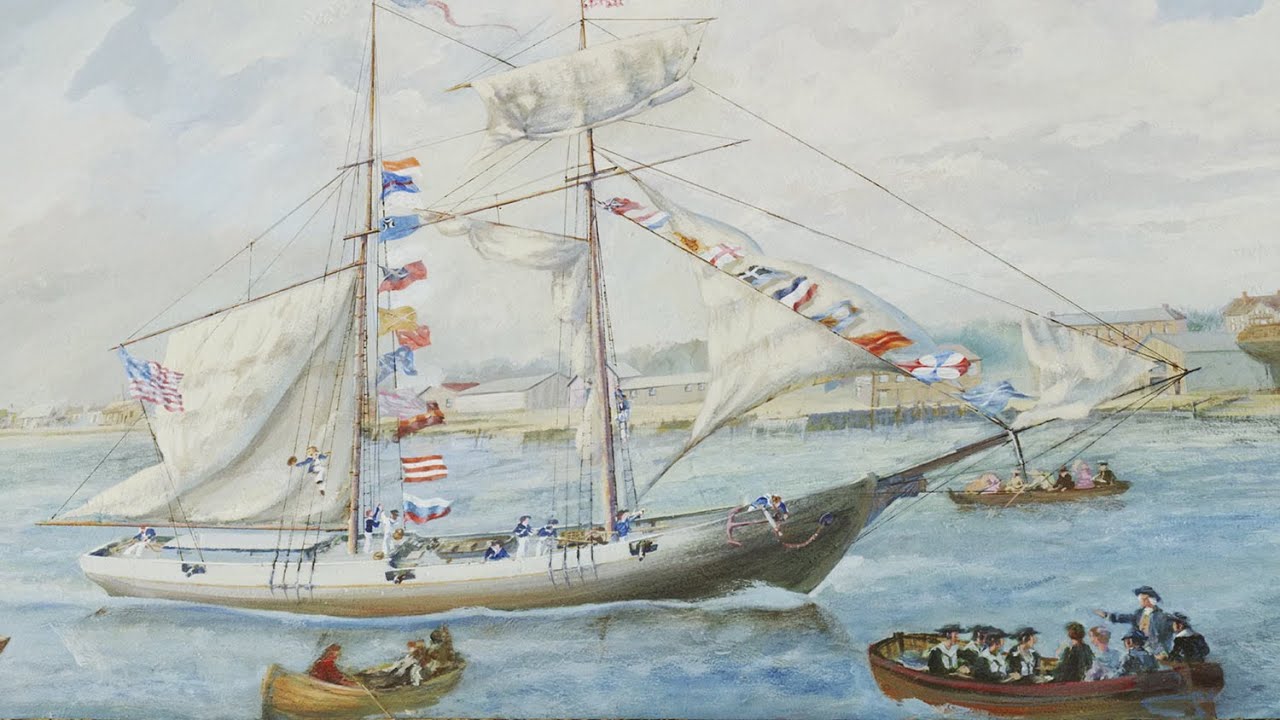Archaeological excavations in Newburyport, along the Merrimack (Molodemak in Abenaki), unearthed an Archaic period assemblage confirming thousands of years of occupation.
Near the confluence of the Molodemak and Coffin Stream (West Newbury) many stone tools and ceramics were collected, dating from the Archaic to Woodland (3,000 B.C.E.-1,000 C.E) periods. Known as the “Coffin Stream Assemblage,” they were collected over 75 years in the 19th and early 20th centuries. This archaeological collection illustrates intermittent seasonal occupation of a strategically located marine resource site over a period of at least 3,000 years.


The Pawtucket constructed dugout and birch bark canoes to navigate the Molodemak, to fish, trade and connect with kinship networks, from the river’s source near Lake Winnepesauke, over 100 miles to its mouth. Evidence of fishing weirs and shell middens along the Molodemak and coast attests to the importance of marine resources as a dietary staple.
The Pawtucket-Pennacook population along the Molodemak watershed is estimated at 15,000-25,000 prior to European arrival.
This Collections acquisition was made possible through the generosity of Jack Santos and an Anonymous Donor, 2024.
Plan Your Visit
Plan Your Visit
- Museum Hours
Sunday: 12 pm - 5 pm
Closed Monday
- Tickets
Free for NBPT residents, kids under 12, and museum members
Cost of admission includes access to the Discovery Center.
- Parking
City parking is available adjacent to the museum. View parking lot directions.

250th Anniversary - American Revolutionary War Newburyport
